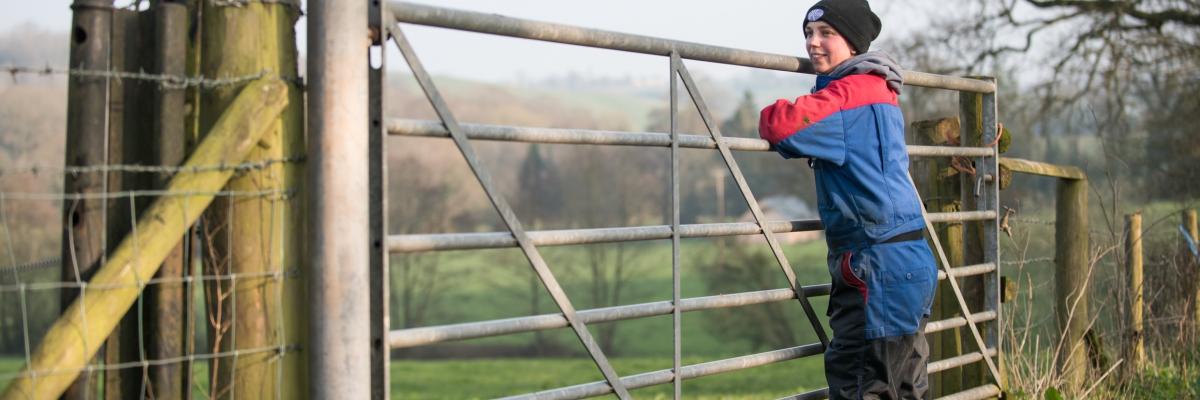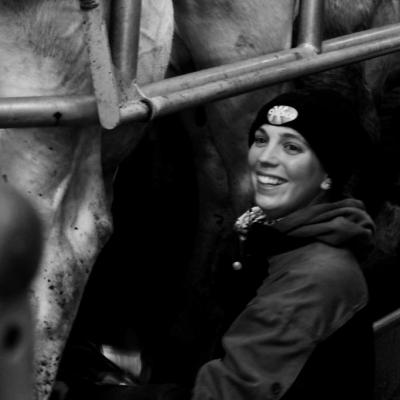
There is no such word as 'can’t' - experiences of transitioning to an antibiotic-free farm
20 April 2020
We enjoy being proactive about the future at Wicton Farm and becoming antibiotic-free proved to be not as difficult as we first thought. Over the last few years our antibiotic usage had naturally declined via the introduction of deep bed sand cubicles, more cow space for feed and water, improved grazing access with concrete sleeper tracks, clean water troughs and an increasing attention to preventative hygiene. With a new parlour installed we made the decision to conduct a 12 month trial of going completely antibiotic-free to see what challenges we faced and if we could overcome them. Our first priority was to make sure our young stock got off to the best start possible and we focused on getting this right first.
The presentation I gave in the video below goes through the detail in our protocols, the changes and the decisions that we made. Attention to high quality basic detail is how our farm operates; from the cows through to the daily work routines, record keeping and staff morale. Any problems are identified and accurately resolved well in advance. We try to not be complacent and we firmly focus on doing the same things better and better as each year goes by. With an ever-changing environment and agricultural industry, we are aware that our farm needs to continually adapt to survive. We believe that dairy farming success lies in getting the simple things correct such as light, air, water, feed, comfort and good daily management. Using antibiotics to treat an animal may indeed sometimes be necessary if animal welfare is at risk but it is important to always assess why an issue has come about and what can be done to prevent it. Treat the cause, not the symptom.
Becoming an antibiotic-free farm was daunting in the beginning but it has made us focus on what we do and why. We have seen a huge improvement in both cow health and cow resilience; so by confirming that we are heading in the right direction.
With animal welfare and regenerative environmental practices dictating our management decisions, the first few years of going antibiotic-free made us realise the importance of looking at the farm as a whole. Two years ago we started researching holistic management and we have now successfully implemented a holistic grazing system. Our holistic knowledge made us become aware of the damage that tractors and cultivation causes to the soil. So we now operate a closed traffic system using RTK guidance for all field operations and all new seeds are direct drilled. Our next farm challenge is to become fully biodynamically certified and in conclusion our take home message to you is that the health of the soil is where every farm should start.
Claire Howlett says of herself "After a very rewarding childhood spent at Wicton, I left the farm aged 18 and proceeded to complete a degree in International Management in French at Bath University. The next 8 years of my life were dedicated to working abroad for an international volunteering organisation and I lived in many remote destinations worldwide. In 2014 my mother and father were approaching 70 years of age, but still actively running our dairy farm on a day to day basis. With the help of a farm succession planner called Sian Bushell, we negotiated a two-year succession plan that would allow myself and my brother to take over the farm so our parents could retire. I became a full-time dairy farmer at Wicton in 2015 with 120 cows on 300 acres and my aim was to ensure that the farm had a sustainable and regenerative future. The farm became organic in 1998 and in 2015 we made the decision to stop using antibiotics."
Follow what Wicton Farm are doing and get in touch via Twitter or Facebook.


